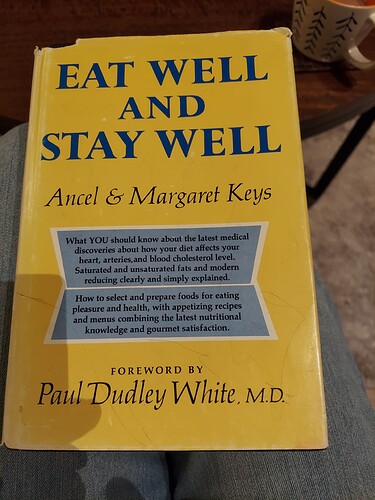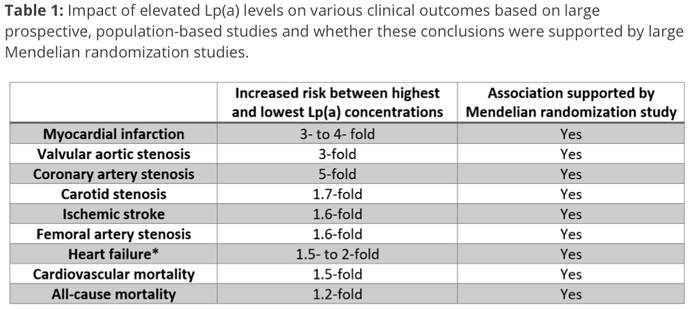I think you’re baiting the hook with a red herring, so to speak. It’s certainly possible that falsehoods get repeated. To answer your question, I admit I don’t know, but I suspect that no authority deliberately advocated “too much” empty calories. But when a diet recommends reducing fats, especially the supposedly unhealthy saturated fats, usually the calorie balance is made up by sugars and simple starches. Yes, there are “healthy” grains and such, but they make up a darned small percentage of the average diet.
I only have a passing familiarity with Keys. He’s most famous for “cherry picking” the seven countries that had both high fat consumption and high heart disease rates for his infamous “Seven countries study.” Granted, I’m informed by a biased source (Kendrick’s books). He makes a persuasive case that fat has been demonized, that cholesterol/LDL is NOT even a factor in cardiovascular disease, (CVD) Much of the strongest evidence for that is simply that there are populations that eat lots of saturated fat and have comparatively low levels of cardiovascular disease. “The French Paradox” remains one of the best known, much to the dismay of the “cholesterol is evil” crowd. But also lesser known cultures like the Masai. Bringing the conversation back to obesity, part of Kendrick’s hypothesis is that it’s stress that is a major (but certainly not the sole) factor in stressing the body’s hormones. He cites two post-WW II examples of “forced” relocations (Finland, Scotland) and how the relocated populations suffered much higher CVD for a few decades following, compared to their compatriots.
If Kendrick is right, then all else held equal, a person or a nation that is subjected to chronic stressors (war or other adversity) will suffer all sorts of health problems, perhaps to include abnormal obesity, even if diet didn’t change.
In reply to VanEen asking “What are these supported claims, out of interest. I’m sort of familiar with the nuts and bolts of the JUPITER study but not your author’s claims…or rather, what your perception of his claims actually mean.”
My perceptions (of statins) are that they are all but useless. Kendrick is far from the only one to say this, but he’s the one I’m most familiar with. Having an ebook version of “Doctoring Data,” here is an extended quote from Chapter 3 that’s relevant. You can easily find the JUPITER trial online. If you’re unfamiliar with studies, you may not be able to deciper what appears below. Many studies go out of their way to “hide” unfavorable data. From the section I quote below, apparently even Kendrick, a doctor of many decades practice, was baffled until his associate explained the figures.
"If there were potential problems with these data, where could they be? I thank Professor Michel de Lorgeril for pointing them out. Because, at first, I couldn’t see them at all, although they were staring me in the face. Typical of a man looking for anything, so I am told by someone living not a million miles away from me.
The main problem goes like this:
Statins were developed to stop people dying of cardiovascular disease. Heart attacks and strokes mainly. They have not been shown to reduce deaths from any other cause – ever. Therefore, one would expect that if there were a reduction in overall mortality, it would have to be due to a reduction in cardiovascular deaths. Would it not?
On this basis, the JUPITER trials started off pretty well. If you look at the total number of heart attacks, there were 31 in the statin arm, and 68 in the placebo arm. Relatively speaking, there were more than twice as many heart attacks in the placebo arm.
However, and please read this bit slowly. There were 22 non-fatal MIs in the statin arm, and 62 non-fatal MIs in the placebo arm.
I shall put this another way:
- In those taking the statin there were thirty one heart attacks which resulted in nine deaths.
- In those taking a placebo there were sixty eight heart attacks which resulted in six deaths.
If we look at stroke:
- In those taking a statin there were thirty three strokes resulting in three deaths.
- In those taking a placebo there were sixty four strokes resulting in six deaths.
If we add heart attacks to stroke, we find that:
- In the statin arm there were twelve deaths from stroke and heart attacks.
- In the placebo arm there were twelve deaths from stroke and heart attacks.
It does not take the use of a super-computer to work out that the difference between twelve, and twelve, is zero. Although it did take a bit of detective work to establish these figures.
To quote Michel de Lorgeril, in the rather damning article he wrote in the Archives of Internal Medicine:
“Although it is quite unusual that the burden of calculating cardiovascular mortality is placed on the readers, all methods used, however, lead to the same conclusion: there is no significant difference in cardiovascular mortality between the 2 groups in the JUPITER trial.”[[38]




